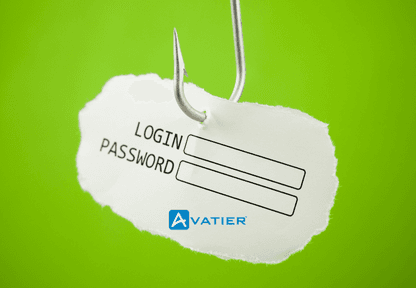August 17, 2025 • Mary Marshall
The Devastating Impact of HIPAA Violations: Real-World Consequences and Prevention Strategies
Discover the consequences of HIPAA violations, from financial penalties to reputational damage. Learn how Avatier’s solutions help healthcare
Healthcare organizations face increasingly complex challenges in protecting patient information while maintaining operational efficiency. The Health Insurance Portability and Accountability Act (HIPAA) establishes critical standards for safeguarding sensitive patient data, but what happens when these protections fail? The consequences extend far beyond regulatory fines, potentially devastating healthcare providers financially, legally, and reputationally.
The Rising Tide of HIPAA Violations
Healthcare data breaches are at an all-time high. According to the Department of Health and Human Services (HHS), 2023 saw a record 733 reported healthcare data breaches affecting over 89 million individuals—a 60% increase from the previous year. The average cost of a healthcare data breach now stands at $10.93 million, significantly higher than the cross-industry average of $4.45 million.
The most common HIPAA violations include:
- Unauthorized access or disclosure of protected health information (PHI)
- Lack of patient access to their health records
- Inadequate safeguards for PHI
- Insufficient risk analysis and management
- Failure to implement identity and access management controls
While some violations result from deliberate actions, many stem from inadequate security controls, improper identity management, or insufficient staff training.
The Catastrophic Consequences of HIPAA Violations
1. Severe Financial Penalties
HIPAA violations can trigger penalties ranging from $100 to $50,000 per violation (per record), with annual maximums of $1.5 million per violation category. In severe cases involving willful neglect, these penalties can be devastating:
- In 2023, Banner Health agreed to pay $1.25 million to settle potential HIPAA violations after a cyber attack exposed the PHI of 2.9 million individuals
- Anthem faced a record $16 million settlement after a data breach affected approximately 79 million people
- The University of Texas MD Anderson Cancer Center was fined $4.3 million for HIPAA violations involving unencrypted devices
These figures don’t include the substantial costs of breach notification, credit monitoring for affected patients, legal defenses, and operational disruptions.
2. Criminal Prosecution
Beyond civil penalties, HIPAA violations can lead to criminal charges against both organizations and individuals:
- Knowingly obtaining or disclosing PHI can result in up to one year in prison
- Violations under false pretenses may lead to five-year prison sentences
- Violations committed with intent to sell or use PHI for commercial advantage, personal gain, or malicious harm can result in up to ten years of imprisonment
3. Reputational Damage and Loss of Patient Trust
Perhaps the most enduring consequence is the damage to an organization’s reputation. According to a recent survey, 87% of patients would switch healthcare providers following a data breach involving their personal information.
Healthcare organizations with HIPAA violations often experience:
- Significant patient attrition
- Difficulty attracting new patients
- Challenges recruiting and retaining qualified staff
- Damaged relationships with partners and vendors
- Decreased operational value and reduced acquisition appeal
This reputational damage often persists long after fines are paid and corrective actions are implemented.
4. Operational Disruption and Remediation Costs
Following a HIPAA violation, organizations must rapidly implement corrective action plans, which often include:
- Comprehensive security assessments
- Implementation of new security technologies
- Staff retraining
- Updating policies and procedures
- Ongoing compliance monitoring
These activities divert resources from patient care and strategic initiatives, creating significant operational disruptions.
Real-World HIPAA Violation Catastrophes
Case Study 1: Mass Data Breach Leads to Multiple Class Action Lawsuits
In 2019, American Medical Collection Agency (AMCA) suffered a data breach exposing the personal information of over 20 million patients. The breach affected multiple healthcare providers who had used AMCA’s services, including Quest Diagnostics and LabCorp.
The consequences were swift and devastating:
- AMCA filed for Chapter 11 bankruptcy within months of the breach
- Multiple class-action lawsuits were filed against AMCA and its healthcare clients
- Quest Diagnostics and LabCorp faced significant reputational damage and regulatory scrutiny
- The breach triggered investigations in multiple states
This case demonstrates how a single HIPAA violation can destroy a business and cascade into broader consequences for the entire healthcare ecosystem.
Case Study 2: Employee Snooping Leads to Termination and Criminal Charges
A hospital employee accessed the medical records of a high-profile patient without authorization. While seemingly minor compared to large-scale breaches, the consequences were severe:
- The employee was immediately terminated
- Criminal charges were filed under HIPAA’s criminal provisions
- The hospital faced a substantial fine for inadequate access controls
- The incident generated negative media coverage, undermining patient trust
This example illustrates how even small-scale violations by individual employees can have significant repercussions for healthcare organizations.
Prevention: Identity Management as the Foundation of HIPAA Compliance
As these examples demonstrate, the consequences of HIPAA violations can be catastrophic. Proactive HIPAA compliance requires a comprehensive approach to identity and access management, which Avatier’s HIPAA compliant identity management solutions are specifically designed to address.
Implementing Zero-Trust Architecture for PHI Protection
Zero-trust security has become essential for healthcare organizations handling PHI. This approach operates on the principle of “never trust, always verify,” ensuring that every access request is fully authenticated, authorized, and encrypted before granting access.
Avatier’s identity management platform implements zero-trust principles through:
- Continuous authentication throughout user sessions
- Just-in-time and just-enough access provisioning
- Context-aware access controls that consider location, device, and behavior
- Comprehensive audit trails for all PHI access attempts
Automating User Provisioning and Deprovisioning
Many HIPAA violations occur during workforce transitions—when employees change roles or leave the organization but retain inappropriate access to PHI. Avatier’s lifecycle management solution addresses this challenge through:
- Automated provisioning based on role assignments
- Immediate deprovisioning when employees change roles or depart
- Regular access certification reviews
- Integration with HR systems to ensure access rights align with current roles
A recent study by Ping Identity found that 88% of healthcare data breaches involve privileged access misuse—highlighting the critical importance of proper identity lifecycle management.
Enhancing Authentication with Multi-Factor Solutions
Weak authentication remains a primary vulnerability in healthcare environments. Avatier’s multifactor integration helps organizations strengthen access controls while maintaining usability:
- Support for multiple authentication factors, including biometrics
- Risk-based authentication that escalates requirements based on access context
- Mobile-friendly authentication options for clinical environments
- Single sign-on (SSO) capabilities that improve security while reducing authentication friction
According to research by Okta, healthcare organizations implementing MFA experience 99.9% fewer account compromise incidents compared to those relying solely on passwords.
Governance and Compliance Monitoring
Maintaining HIPAA compliance requires ongoing vigilance and governance. Avatier’s Access Governance solution enables healthcare organizations to:
- Conduct automated access reviews and certifications
- Generate comprehensive audit trails of all identity-related activities
- Implement segregation of duties policies to prevent conflicts of interest
- Provide evidence of compliance for regulatory audits
Building a Culture of HIPAA Compliance
While technology provides the foundation for HIPAA compliance, creating a culture of security awareness is equally important. Healthcare organizations should:
- Provide regular training: Ensure staff understand HIPAA requirements and recognize potential violations.
- Establish clear policies: Develop and communicate comprehensive policies for handling PHI.
- Encourage reporting: Create channels for employees to report potential violations without fear of retaliation.
- Conduct regular audits: Proactively identify and address compliance gaps before they lead to violations.
- Test incident response: Practice response protocols to prepare for potential breaches.
The Future of HIPAA Compliance: AI and Predictive Analytics
As healthcare technology evolves, so too do the solutions for HIPAA compliance. Forward-thinking organizations are leveraging AI and predictive analytics to:
- Identify unusual access patterns that may indicate unauthorized PHI access
- Predict potential compliance risks before violations occur
- Automate routine compliance tasks to reduce human error
- Continuously adapt security controls to emerging threats
Conclusion: From Catastrophe to Confidence
HIPAA violations can have catastrophic consequences, but they are preventable with the right approach to identity and access management. By implementing robust IAM solutions like those provided by Avatier, healthcare organizations can:
- Protect patient data through comprehensive access controls
- Reduce the risk of costly violations and penalties
- Maintain patient trust through demonstrated commitment to privacy
- Streamline compliance processes to reduce administrative burden
In today’s high-risk healthcare environment, effective identity management isn’t just about regulatory compliance—it’s about protecting patients, preserving organizational reputation, and preventing the devastating consequences of HIPAA violations.
By partnering with Avatier for HIPAA-compliant identity management, healthcare organizations can transform their approach to data protection, moving from reactive compliance to proactive security that safeguards both patients and providers from the catastrophic impact of HIPAA violations.









